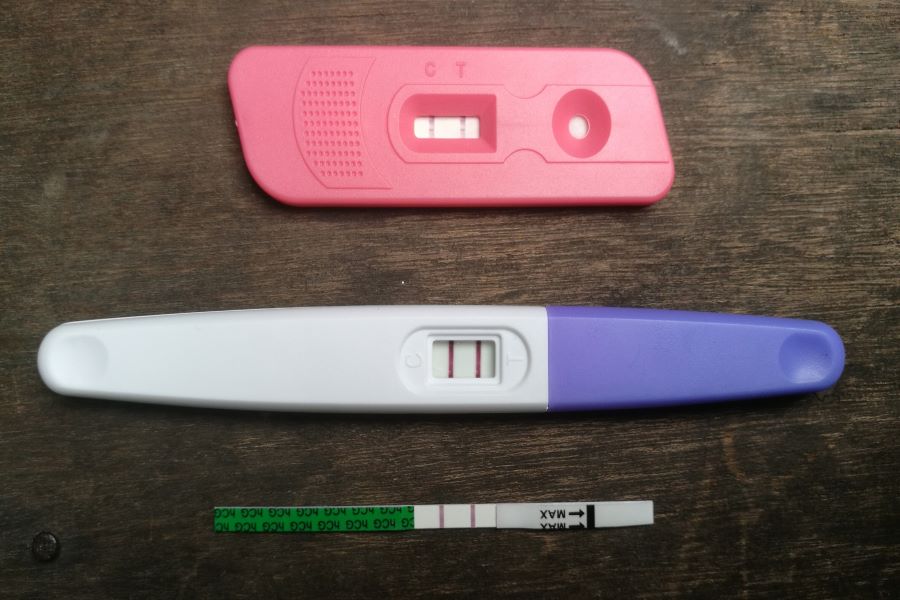Types of Pregnancy Tests

Pregnancy tests work by detecting a hormone called hCG (human chorionic gonadotropin) in the blood or urine. A woman’s body produces hCG in large amounts when she is pregnant.
The body starts making hCG once the fertilized egg implants in the uterus. This is usually about six days after the egg and sperm merge but can occur later in some women. Once the body starts making hCG, it makes it in higher and higher amounts throughout the pregnancy and then eventually tapers off.
Pregnancy blood tests
Blood pregnancy tests need to be ordered by a doctor. They are positive much sooner than a urine test, detecting pregnancy as early as six days after ovulation (the day the egg leaves the ovary and moves to the fallopian tube to be fertilized). There are two types of pregnancy blood tests:
Qualitative hCG—This test simply looks to see if any hCG is present in the blood, giving a Yes or No response. It is about the same accuracy as a urine test.
Quantitative hCG (or beta hCG)—This test measures the amount of hCG found in the blood and reports it as a number. It can detect even the tiniest amounts of hCG and is therefore the most accurate.
Urine pregnancy tests can be performed at a doctor’s office or at home. Urine tests for home use are called home pregnancy tests (HPT).
Home pregnancy testing
There are a lot of different types and brands of home pregnancy tests available. But they all measure the same thing, whether hCG is present in a urine sample. They are inexpensive, private, and very accurate if used correctly and at the right time—which is about 1-3 weeks after a missed period.
Many tests claim to work sooner, but according to the U.S. Department of Health and Human Services’ Office on Women’s Health, “Research suggests that most HPTs do not always detect the low levels of hCG usually present this early in pregnancy. And when they do, the results are often very faint.” Therefore waiting a week (or retesting after a week if the result is negative) is recommended.
Here are a few tips for home pregnancy testing:
Read the instructions. Different brands have different recommendations for how to gather the urine sample and other factors. For instance, some tests come with a “control indicator” in the results window that appears no matter what. If the control indicator doesn’t show, it means that there is something wrong with that test and the results should not be trusted.
Take the test with the first urination of the morning. Urine is usually more concentrated at this time and might make it easier to detect the hCG.
Wait 10 minutes to view the results. Different brands recommend different time frames to wait, but research suggests waiting 10 minutes will give you the most accurate result.
Repeat the test in a few days to a week, especially a negative one. For some women, implantation can happen much later so hCG won’t be detectable in the urine as early.
If you have questions about your particular home pregnancy test or results, there is often a phone number or help information with the test kit. And, of course, any positive result should be followed up with your doctor.
Sources:
- U.S
- Department of Health and Human Services
- Pregnancy tests fact sheet.
Powered by Bundoo®










